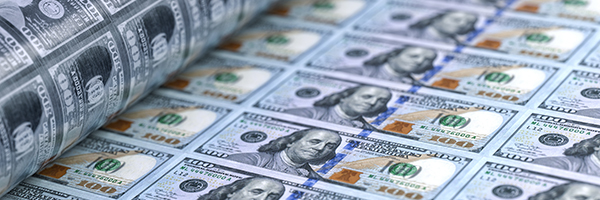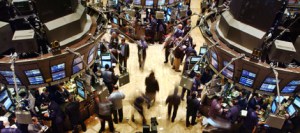 January 9, 2025
January 9, 2025
What You Need to Know Today:
Pending home sales climb again. Is this another negative sign for 2025?
Pending sales of U.S. homes increased for a fourth month in November to the highest level since early 2023. But why? That’s the key question. If it’s because potential buyers have given up waiting for the Federal Reserve to cut interest rates further, then this “good news” is another negative indicator for 2025

“Drill, baby, drill”? OPEC doesn’t think so
Oil edged lower–West Texas Intermediate closed down 0.06% and Brent ended 0.08% lower–after OPEC+ announced plans to defer supply increases for three months, but still add barrels starting in April to a market that’s expected to be oversupplied. The Organization of the Petroleum Exporting Countries and its allies agreed to delay their planned output hike.

Peak gasoline demand is near (or maybe even here) in China
The forecasts don’t totally agree on the date but they do agree on the trend: Because China’s sales of electric vehicles and hybrids accounted for more than half of retail passenger vehicle sales in the four months from July, the country’s demand for gasoline is near a peak. And unlike in the U.S. and Europe where peaks in consumption were followed by long plateaus, the drop in demand in the world’s top crude importer is expected to be more pronounced. Brokerage CITIC Futures sees Chinese gasoline consumption dropping by 4% to 5% a year through 2030. The
International Energy Agency says demand peaked in 2024 and forecasts a 2.3% decline in 2025.

When does that U.S.-China tech trade war arrive? Right about now
Yesterday, Tuesday, December 3, China retaliated to a new round of U.S. technology restrictions from the Biden Administration with a ban on exports of high-tech minerals gallium, germanium, and antimony. Beijing will also place tighter controls on sales of graphite. On Monday the White House slapped new restrictions on the sale of high-bandwidth memory chips made by U.S. and foreign companies to China. The measures blacklisted 140 additional Chinese entities with a focus on companies that produce chip manufacturing equipment that’s crucial to China’s pursuit of semiconductor self-sufficiency. The metals targeted in China’s export ban are used in everything from semiconductors to satellites and night-vision goggles.

Saturday Night Quarterback (on a Sunday) says, For the week ahead expect…
I the Big Event to be Friday morning’s report of the November jobs numbers. The Dow Jones Industrial Average rose more than 2% last week. The Nasdaq Composite and the Standard & Poor’s 500 rose more than 1%. Both the S&P 500 and Dow Jones ended November at all-time highs. A ”good” jobs report, which is likely, will keep the records coming for at least another week–until the usual Fed meeting jitters set in on the run up to the central bank’s meeting on December 18.

Adding Berkshire Hathaway as Pick #9 in my Special Report “10 New Stock Ideas for an Old Rally”
Today I added Berkshire Hathaway (BRK-B) as Pick #9 in my Special Report “10 New Ideas for an Old Rally.” Here’s what I wrote in that Special Report.

Today I added Salesforce from my 5 Next Big Things Special Report to my Jubak’s Picks portfolio
At this point in the AI cycle I’d like to own shares of companies providing AI solutions in relatively “easy” data universes. (Nothing as complex as voice recognition for an interface with a diverse customer universe under uncontrolled environmental conditions. Like a family in a car at a McDonald’s drive-through.) And I’d like to focus on shares of companies with products that provide clear enhancements to customers bottom lines. Like my Pick #4 Salesforce (CRM). in my 5 Next Big Things Special Report.
Live Market Report (20 minute delay)

This market has an AI problem–AI companies aren’t making money
Remember the good old days–say, 2023–when all you had to do was slap AI in the name of a company and the stock would soar? I kept waiting for AI Burgers made from AI cows, or AI Shoes, which used AI machine learning algorithms to tell you what size shoe you needed. This investor embrace of all things AI led to the fear that there was an AI-stock market bubble that would send the entire stock market into a very painful bear market when it broke. The appetite for AI stocks is still huge–witness the rebound in Nvidia (NVDA) shares that added $400 billion to the stock’s market cap in a four-day recovery from the “sky-is-falling, we’re-headed-to-a-recession stock market retreat. But this stock market still has a big AI problem. We will find out how big when Nvidia reports earnings after the close tomorrow, August 28. Here’s the problem: Most AI companies aren’t making money.

Consumers more confident–but more worried about jobs
U.S. consumer confidence rose to a six-month high in August. The Conference Board’s gauge of sentiment increased to 103.3 from an upwardly revised 101.9 a month earlier, data out Tuesday showed. The median estimate in a Bloomberg survey of economists called for a reading of 100.7. But…

The argument for adding more gold even now
Gold hit a new all-time high today of $2554 an ounce on the Comex for December delivery. Gold’s 20% or so gain in 2024 to date (as of August 26) is a result of strong central-bank buying plus Asian purchases plus anticipation that the Federal Reserve was about to cut interest rates. Now that Fed chair Jerome Powell has just about promised a cut at the Fed’s September 18 meeting it looks like gold will climb further in 2024 on the fundamentals. Bullish Wall Street targets say $2700 to $3,000 by the end of 2024. That’s a decent reason to hold gold. But the very scary geopolitical landscape over the next six months makes me anxious to add more gold even at the record nominal high for the metal.

Saturday Night Quarterback says (on a Sunday), for the week ahead keep your eyes on two different events…
It wouldn’t hurt to be a crab this week so you’d be able to independently rotate your eyes to look in two different directions. With one eye this week, investors and traders will want to watch the Wednesday, August 28, earnings report from Nvidia (NVDA) to see if tech stocks can continue to regain the momentum they lost in the market tumble of early August.And with the other eye, watch for reaction to Fed chair Jerome Powell’s Friday Jackson Hole speech that promised an initial interest rate cut at the Fed’s September 18 meeting. Now market attention shifts to how many rate cuts there will be in 2024. Anything less than full 100 basis points at the September, November, and December meetings will disappoint some bond traders.

No surprise! Powell says Fed will cut rates at September 18 meeting
Speaking at the Kansas City Fed’s Jackson Hole central bankers gab fest, Jerome Powell, the chair of the Federal Reserve, clearly said on Friday that the central bank was poised to cut interest rates at its September 18 meeting. “The time has come for policy to adjust,” Powell said. “The direction of travel is clear, and the timing and pace of rate cuts will depend on incoming data, the evolving outlook and the balance of risks.” He then added: “We will do everything we can to support a strong labor market as we make further progress toward price stability.” All this shifts market attention from WHEN the Fed will begin cut interest rates to HOW FAST those cuts will be.

Big downward revision in jobs locks in September interest rate cut by the Fed, puts November cut in play
Monthly employment reports overstated the number of job created by the U.S. economy by 818,000 in the 12 months that ended in March 2024, the Labor Department reported on Wednesday, August 21. That revision, part of the annual process that reconciles job reports derived from monthly surveys with state records, says that employers added about 174,000 jobs per month on average during that period, down from the previously reported pace of about 242,000 jobs. That’s a drop of about 28%.

A soft landing–good for the economy but, I worry, maybe not for stocks
No doubt about it. A soft-landing would way better for the economy than a poke in the eye with a sharp stick. No big spike in unemployment. Decent growth in real personal incomes. Controlled and relatively low inflation. Real interest rates falling–slowly–from their current historically high levels. It would be a huge positive achievement if the Federal Reserve could engineer a soft landing after raising interest rates to slow the economy and cut inflation and then beginning to reduce interest rates to make sure that growth didn’t slow too much or too quickly. A huge positive the economy. I’m not sure, however, that an economic soft landing is quite so big a positive for the stock market.

Recession fears? Nevermind says Goldman Sachs
Economists at Goldman Sachs have lowered the probability of a U.S. recession in the next year to 20% from 25%, citing this week’s retail sales and jobless claims data. If the August jobs report set for release on September 6 “looks reasonably good, we would probably cut our recession probability back to 15%, where it stood for almost a year” before a revision on August 2, the Goldman economists said in a report to clients on Saturday. And that would unwinded the recession fears that sent stocks plunging at the beginning of the month.

China’s stocks get riskier as data flow stops
Starting tomorrow, Monday, August 19, China’s stock exchanges will stop releasing daily data on overseas fund flows. The move means that investors won’t be able to track flows into and out of China’s $8.3 trillion market comes as all data so far point to China’s first yearly outflow from equities in 2024 since 2016. foreign funds have steadily withdrawn money from the market, taking the year-to-date tally to negative as of Friday. The move is intended, it looks like, to prop up the market by reducing volatility induced by short-term data and turn investor focus to longer-term indicators. I doubt that’s how it will work

Saturday Night Quarterback says, For the week ahead expect…
I expect cash flows to favor a continued recovery rally. One thing that happens in financial markets when central banks get set for a major change in policy direction is that cash flows from re-positioning of speculative and trend-following strategies can drive big moves in market volatility. And that’s exactly what we’re seeing now. Besides the unwinding of yen carry positions that led to selling of dollar-denominated assets, the two-week sell off that ended last week saw the biggest unwind in U.S. equities since the Covid-19 panic. And now this unwind looks to be over, Which means this cash will be going back to work in U.S. stocks. The action is taking place in trend-following quant funds.

Gain in consumer sentiment adds to soft-landing scenario
U.S. consumer sentiment rose in early August for the first time in five months as consumers raised expectations on their finances and on subsiding inflation. The University of Michigan sentiment index climbed to 67.8 from 66.4 in July, according to the preliminary August reading. The median estimate in a Bloomberg survey of economists called for 66.9.

So much for those recession fears
What happened to all that selling? And the conviction that the U.S. economy ws headed for a recession? The Standard & Poor’s 500 finished Thursday, August 15, with another up day for a 6-day rally that has pushed the index up 6.6%.Treasury yields surged with the yield on the 2-year Treasury, the maturity most sensitive to shifts in sentiment about the direction of Federal Reserve interest rate policy, climbing back above 4%. The S&P 500 climbed 1.6% on the day. The Nasdaq 100 added 2.5%. The small-cap Russell 2000 gained2.5%. The CBOE Volatility Index, Wall Street’s “fear gauge,”the VIX, dropped back to near 15, below its long-term average, and hugely below its August 5 close at 38.57. The proximate cause of the rebound rally? Three reports showing that the U.S.consumer is alive, well, and still buying stuff.

CPI inflation slips, track to September rate cut clear
Core CPI inflation rose at a 3.2% annual rate in July. That was the slowest rate of increase since early 2021.And that rate of increase was low enough to keep the Federal Reserve on track for cutting interest rates at its September 18 meeting.

Could China be looking at a repeat of Japan’s no growth decades?
A plunge in new corporate borrowing in China combined with Chinese households preferring to repay debt rather than expand borrowing saw bank loans in China shrink last month for the first time since July 2005. That deepened China’s years-long battle with weak credit demand, as a property slump spurs caution on buying homes and expanding investment. This has raised fears that China’s first bank loan contraction in nearly two decades could send the world’s No. 2 economy toward a “balance sheet recession” similar to that in Japan decades ago.

Are we talking ourselves into a recession?
Economic models from Goldman Sachs and JPMorgan Chase show that higher odds of an economic downturn have risen materially, judging by signals in the U.S. bond market and to a lesser extent the performance of stocks that are acutely sensitive to the ebbs and flows of the business cycle.

S&P 493 stocks show profit growth for first time in five quarters
Profit growth at the Magnificent 7–Apple, Microsoft, Alphabet, Amazon, Meta, Tesla, and Nvidia-—still raced ahead of the rest of the S&P 500 in the second quarter, But for the first time in five quarters, the rest of the S&P 500–the S&P 493 if you will–showed positive year-over-year growth in profits.

Saturday Night Quarterback says (on a Sunday), For the week ahead expect…
Expect a final inflation test before the Federal Reserve meets on September 18. Unless there’s a huge surprise in the Wednesday, August 14, CPI report, the Fed will cut interest rates for the first time at that meeting.

Initial claims fall raising possibility that July job weakness was just a blip and not a signal of a recession
The number of Americans filing initial claims for unemployment benefits fell more than expected last week. Initial claims fell 17,000 to a seasonally adjusted 233,000 for the week ended August 3, the Labor Department said today, August 8. That was the largest drop in 11 months. Economists polled by Reuters had forecast 240,000 claims for the latest week. The data calmed fears on an impending recession raised by last Friday’s unexpectedly weak jobs report for July.

China exports slowed in July–not a good sign for global growth
I’d worry less about the U.S. slipping into recession if the rest of the global economy wasn’t so challenged on growth. For the first quarter of 2024, the annual growth rate in the European Unpin was just 0.6%, for example. And now we have data out of China showing that export growth unexpectedly slowed in July. That signals cooling global demand at a moment when China needs export growth to make up for a sluggish domestic economy. Exports rose 7% in July in dollar terms from a year earlier, falling short of economists’ median forecast of a 9.5% gain.

Next big volatility day? Looks like tomorrow, Thursday
The options market is implying the S&P 500 Index will move 1.2% in either direction that morning on the report on U.S. initial and continuing claims for unemployment.



